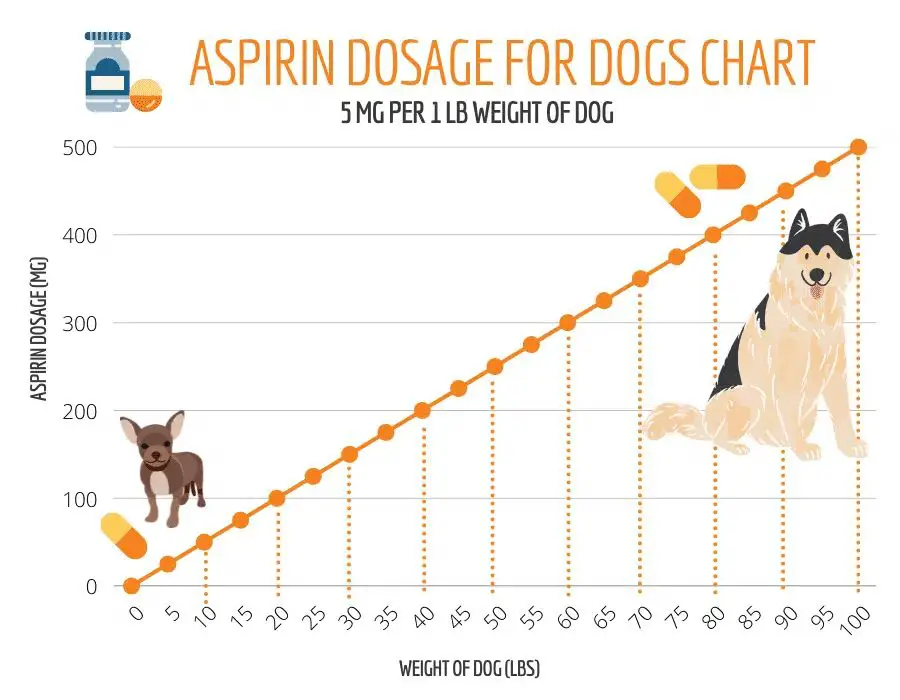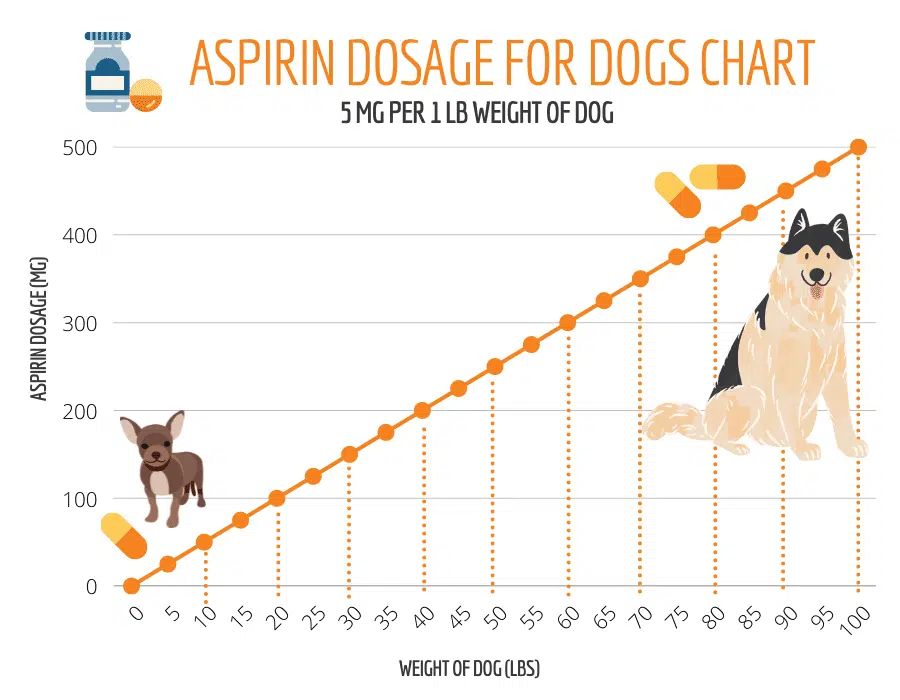Introduction
Buffered aspirin is a form of aspirin formulated to be easier on the stomach than regular aspirin. When used carefully under veterinary guidance, buffered aspirin can help manage pain and inflammation in dogs. However, aspirin carries risks and should only be given to dogs under certain circumstances. Proper dosage and administration of buffered aspirin for dogs is very important. This article will cover when buffered aspirin may help dogs, proper dosing guidelines, how to give buffered aspirin to dogs, and tips for monitoring your dog while using this medication.
What is Buffered Aspirin?
Buffered aspirin is a formulation of aspirin that has been buffered with chemicals like magnesium oxide or calcium carbonate to make it easier on the stomach. Regular aspirin has an acidity level of around 3 pH, which can irritate the stomach lining and cause side effects like vomiting or stomach ulcers in some dogs.

The buffering agents in buffered aspirin raise the pH to around 6-7, which is much closer to the natural pH of the stomach. This helps reduce the risk of stomach irritation from the aspirin while still allowing the aspirin to provide its intended therapeutic benefits like pain relief.
Some common brand names for buffered aspirin designed for dogs include Enteric coated aspirin, Ecotrin and Aspro Clear. These over-the-counter medications can provide temporary pain relief and anti-inflammatory benefits to dogs when used responsibly under veterinary guidance.
When Can Buffered Aspirin Help Dogs?
Buffered aspirin can provide pain relief and reduce inflammation for dogs dealing with certain conditions. Under the guidance of a veterinarian, buffered aspirin is often recommended for:
Arthritis – One of the most common chronic conditions in older dogs is arthritis. The anti-inflammatory properties in buffered aspirin make it useful for managing joint pain and stiffness from arthritis.
Post-Surgical Pain – Buffered aspirin is sometimes prescribed for a few days after a surgery to help control post-op pain and inflammation. Always check with your vet before giving any medication after a procedure.
Fevers – Buffered aspirin can help reduce elevated body temperature in dogs with a fever from an infection or other illness. It’s important to identify and treat the underlying cause of the fever as well.
In addition to these uses, some vets may recommend buffered aspirin for certain other conditions that involve inflammation or pain. However, it’s essential to consult your vet before giving any medication, including buffered aspirin, to confirm it is safe and appropriate for your dog.
Proper Buffered Aspirin Dosage for Dogs
When giving your dog buffered aspirin, it’s crucial to administer the proper dosage based on your dog’s weight. Exceeding the recommended dosage can lead to potential toxicity and dangerous side effects.
The general buffered aspirin dosage guidelines for dogs are:
- Under 10 lbs: 1/4 standard aspirin tablet per day
- 10-25 lbs: 1/2 standard aspirin tablet per day
- 26-50 lbs: 1 standard aspirin tablet per day
- 51-75 lbs: 1 1/2 standard aspirin tablets per day
- 76-100 lbs: 2 standard aspirin tablets per day
It’s important to never exceed these maximum daily limits. Buffered aspirin should also not be given for more than 5 days consecutively without veterinary approval. Stick to the proper dosage for your dog’s weight and monitor them closely for any side effects.
Administering Buffered Aspirin to Dogs

When giving your dog buffered aspirin, it’s important to administer it properly to ensure safe and effective dosing. Here are some tips on administering buffered aspirin to dogs:
– Always give buffered aspirin with food. This helps protect the stomach lining and prevents potential irritation from the aspirin. Giving buffered aspirin on an empty stomach can cause nausea.
– If your dog won’t take the pill directly or with their normal food, try concealing it in a “pill pocket” treat. Pill pockets are soft treats with a pocket that you can insert a pill into. Dogs usually gobble these up without detecting the medication inside.
– Avoid forcing your dog to take a pill they don’t want to. This could lead to choking or aspiration of the pill. It’s better to get creative and find a tasty way to hide the pill in food so they take it willingly.
– If your dog spits out the pill, do not attempt to re-administer the same pill. The coating may have dissolved and could then irritate their stomach. Retrieve a fresh buffered aspirin pill and try again.
– Always follow your veterinarian’s instructions for how often and how many pills to give your dog. Do not exceed the recommended frequency or dose.
By making sure to give buffered aspirin with food and concealing it in tasty treats if needed, you can safely administer this medication to your dog. Check with your vet if you have any questions on proper techniques for pill giving.
Monitoring Your Dog on Buffered Aspirin

When giving your dog aspirin, keep a close eye on them for any concerning side effects. Here are some things to watch for:
Vomiting or Diarrhea – These are common potential side effects of aspirin in dogs. If you notice any vomiting or diarrhea after administering aspirin, stop giving it and call your vet. Frequent gastrointestinal upset indicates aspirin is not a good fit for your dog.
Lack of Appetite – Aspirin can sometimes cause a decrease in appetite. Make note if your dog does not seem interested in eating after being given aspirin. A persistent loss of appetite may mean aspirin should be discontinued.
Changes in Behavior – Unexplained behavioral changes like lethargy, restlessness, or aggression can be a sign your dog is having a negative reaction to the aspirin. Stop giving aspirin and let your vet know if any behavioral shifts occur.
Increased Thirst or Urination – Aspirin can potentially cause adverse kidney effects in dogs, which may show up as increased thirst or urination. Contact your vet promptly if you notice your dog seems abnormally thirsty or is urinating more frequently.
Carefully observing your dog after each buffered aspirin dose can help you detect any problematic side effects early. Tell your vet right away if anything seems off. With close monitoring, you can help keep your dog comfortable and avoid more serious complications from aspirin.
Risks and Contraindications
As with any medication, there are some risks associated with giving buffered aspirin to dogs that pet owners should be aware of. The most concerning potential side effects include:
Stomach Ulcers
One of the most common side effects of aspirin is gastrointestinal upset, including vomiting, diarrhea, and ulcer formation. Aspirin can irritate the stomach lining, potentially leading to painful ulcers in some dogs. This is because aspirin inhibits prostaglandins, which normally help protect the stomach lining.
Bleeding Risks
Aspirin also thins the blood by inhibiting platelet function. This provides some benefits in terms of blood circulation, but also increases the risk of internal bleeding or excessive bruising/bleeding if a dog gets injured while on buffered aspirin therapy.
Medication Interactions
Buffered aspirin should not be combined with other NSAIDs, steroids, or anticoagulant medications as this further increases the risk of stomach ulcers and bleeding problems. Pet owners should consult with their vet before starting aspirin if their dog takes any other medications.
For these reasons, buffered aspirin is not recommended for dogs with pre-existing ulcers, bleeding disorders, or those taking certain other drugs. Routine bloodwork to check for issues is also a good idea. Careful monitoring and vet supervision is advised when using buffered aspirin in dogs.
Best Buffered Aspirin Brands for Dogs
When choosing a buffered aspirin brand for your dog, it’s important to select a product made specifically for canine use. Human aspirin can be dangerous for dogs due to differences in metabolism. Here are some top buffered aspirin products for dogs:
VetOne Buffered Aspirin for Dogs
– Veterinarian-approved chewable tablets
– Buffered formula is gentle on your dog’s stomach
– Flavored for easy administration
PetNC Natural Care Buffered Aspirin
– Contains sodium carbonate buffer for stomach protection
– Dye free and preservative free
– Compressed powder tablets mix easily into food
Bayer Aspirin Regimen Buffered Aspirin for Dogs
– Clinically tested low-dose aspirin
– Buffered for fast symptom relief
– Includes vet-recommended dosage for your dog’s weight
Be sure to follow your vet’s dosage instructions carefully when giving buffered aspirin. Monitor your dog for any side effects and discontinue use if any develop.
When to Call the Vet
If your dog experiences any concerning side effects after starting buffered aspirin, contact your vet right away. Signs to watch for include:

- Vomiting or diarrhea
- Lack of appetite
- Lethargy or depression
- Blood in stool or vomit
- Bruising or nosebleeds
- Jaundice (yellowing of gums, skin or eyes)
- Difficulty breathing
- Seizures
You should also let your vet know if your dog’s condition does not improve after a few days on buffered aspirin. The medication may need to be adjusted or a different treatment may be required. Do not increase the aspirin dose or duration without consulting your vet first.
Routine blood work should also be performed while your dog is on long-term buffered aspirin therapy. This allows your vet to monitor for side effects like liver or kidney damage.
Stay in close contact with your veterinarian whenever your dog is taking any medication, including buffered aspirin. This helps ensure your dog’s safety and optimal treatment.
The Takeaway
When used responsibly under veterinary guidance, buffered aspirin can provide dogs relief from pain and inflammation associated with arthritis and other joint issues. However, pet owners should exercise caution with buffered aspirin, as improper dosing can cause serious health complications in dogs. It’s critical to consult your vet before giving your dog any new medication, including buffered aspirin.
Your vet will advise you on the appropriateness of buffered aspirin for your dog’s condition, recommend a safe dosage amount based on your dog’s weight, and provide tips on proper administration. They’ll also discuss signs of potential adverse reactions and when to discontinue use or seek emergency care. While buffered aspirin can be purchased over-the-counter, pet owners should not give their dog this or any other medication without explicit veterinary approval. With your vet overseeing use, buffered aspirin can likely provide your arthritic dog some comfort. But ultimately, your vet knows your pet best and can recommend the safest pain relief options for their unique needs.
